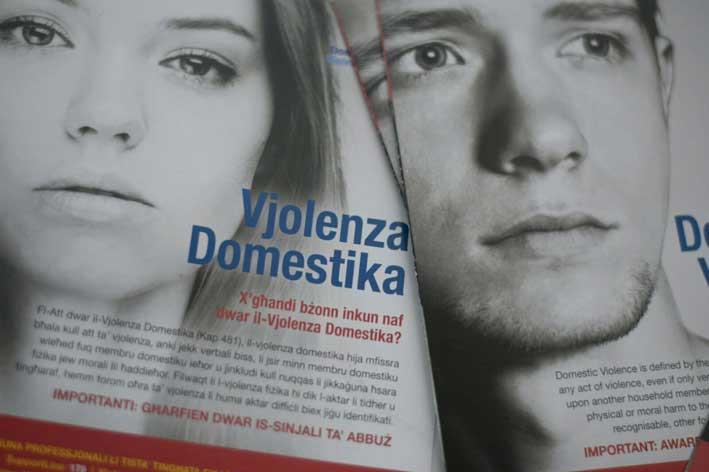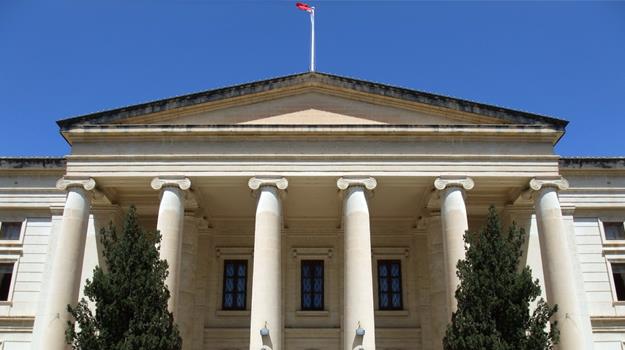Malta’s sky-rocketing property rental market is a ‘massive problem’ and ‘struggle’ for domestic violence victims whose next step to independence and autonomy requires moving out of the home of their abuser, the Director of Kummissjoni Ejjew Ghandi Andrew Azzopardi has said.
Speaking to The Malta Independent in an interview, Azzopardi explained that in order for the victims to achieve independence, they need to have a place which they can afford, and that, with the rapidly-increasing rental and property market, it is becoming problematic.
Average rental prices in Malta, excluding Gozo, have risen by roughly 47 per cent between 2013 and 2016, a report commissioned to KPMG and published last month, shows.
“In order for them to reach that independence, they need to have a place which they can afford and pay, and that has become a massive struggle,” he said.
Azzopardi was speaking from his experience as Director at the Santa Venera shelter for domestic violence ‘Dar Qalb ta’Gesu’, which is a second-stage shelter hosting nine families at a time prior to them moving on to reach independence from the abusing partner.
“The rise in rent definitely impacts our work,” he continued.
However, he believes that, besides government involvement, everyone should take responsibility as a welfare society.
“We have had meetings with the government to find solutions on how to help these women,” he said. “There is a will to talk about the problem, but it is a challenge to find feasible solutions.”
“And it shouldn’t just be the government to come up with them, the government obviously carries responsibility but it shouldn’t just be just them in my opinion, if we live in a welfare society where people take responsibility for each other, it should be a joint effort. “

With regard to children in care, is the €70 per child per week as contribution from the government enough?
Any child who is placed in care gets a contribution of €70 from the government per week. The contribution is to help the running of the home.
As soon as the child comes into our care, we can apply for this fund, which no, alone is nowhere near enough for what is needed to run a home. In our care, we don’t have groups bigger than six children per home. We try to keep the numbers small because we focus on individualized care.
For a group of six, we calculate that you need five full-timers besides the social worker and manager, and that is just salaries we are talking about. The rest of the funds come from the church and from fundraising activities, whilst in some homes we still have some laypersons working as care persons.
How much would you need for it to be satisfactory?
I hate talking about these homes in terms of financial burdens or financial responsibilities, but at the end of the day, if you want to call it a service, it costs a lot. I calculate that if you want to have a good quality home with the bulk of it funded by the church, you need to spend €115 per child per night, because these services are expensive if you want the quality of the service to be high.

The eventual step for children in care is to gain independence. In the past few years, with the increase in rent, are residents less likely to go and live alone?
It is a massive problem. For the past year or so we have not had eighteen year olds in our homes, therefore we did not come across the problem there.
However, one of the services we run is a shelter for domestic violence in Santa Venera, called Dar Qalb ta’ Gesu, where we host nine women and their children. Dar Qalb ta’ Gesu is unique in its nature because it is a second-stage shelter. It is one that women come to if they need further support, as secondary care, if they need more help to reach independence from the abusing partner.
In order for them to reach that independence they need to have a place which they can afford and pay, and that has become a massive struggle. We have meetings with the government to find solutions on how to help these women. So the rise in rent definitely impacts our work.
I think it is going to become a bigger problem in the years to come. The biggest worry for me is that there is no light at the end of the tunnel. There is a will to talk about the problem, but no feasible solutions. And it shouldn’t just be the government to come up with them, the government obviously carries responsibility but it shouldn’t just be just them in my opinion, if we live in a welfare society where people take responsibility for each other, it should be a joint effort.
In a recent interview, Safeguarding Commission member Dr Kevin Borg spoke about improvements which could be made within the Child Protection Act. What could be improved in your opinion?
Whenever we talk about the Child Protection Act, we must talk about the mandatory reporting law.
(A 2017 law introduced mandatory reporting in the event of child abuse, which basically made it a legal obligation to report a case to the police or social workers when maltreatment or abuse is suspected.)
It may be problematic for those people who do not want their story to get to the police. They might fear reaching out and would therefore be afraid to make that step, when it is already difficult to take that step. In Malta if you go to the police then there is a chance you can go to court and end up on the media, and that is another factor which could scare victims. In Malta, even if you don’t get the name of the victim, the likelihood of people around you recognizing the story is very high, we live in a very small community here.
Also, the fact that the abuser only gets a suspended sentence, why is that?

What, in your opinion would be more of an apt penalty?
When it comes to sex offenders, I think there should be an element of crime and justice but there should also be an element of restorative justice. Does a sex offender’s treatment programme exist in Malta? Do we have specific therapy for the offender? What happens once the offenders are out of prison?
At the safeguarding commission we do not talk about guilty or not, we talk about levels of risk. We need to have a system in Malta whereby these people receive help whereas having a system where the victims get help, and therefore risk is reduced.
What disappoints me in the law is the criminalization of professionals, so I am glad they are reviewing the act.
In a society where children are often victimized and the family members of the victim are not managing to protect them, it is the professional who needs to step up and protect them, if we victimize professionals by threatening to fine them or send them to prison, as it was in the previous format, you will not get fear not help from the ones who are supposed to help you.
Either the professional will say ‘I am not going to get involved’ or the professional will keep referring case after case. And the biggest challenge for the child protection worker is to find the needle in the haystack.
I am in favour of systems which support the professional to prevent abuse. I think that the approach of criminalizing them from the start is counterproductive.
Do you think children should be educated further regarding abuse in order to protect themselves?
I think the key part to prevention is educating and empowering children and in society today children get a lot of messages, especially from the media. Often they are very good messages, but many times they are concerning to people like me, who work in the field.
How so?
Children nowadays have easy access to information. On one hand this is extremely good for opening one’s mind, education and character formation. However there are also dangers that the children and teenagers can face.
In a culture where young people view pornography freely and to such an extent on the internet, are constantly taking in the messages it gives off and the message of these pornographic messages are that sex is a right, especially for boys, that it is a need, that my pleasure is more important than someone else’s pain and that it doesn’t cause anyone harm and everybody must be doing it, therefore it is ok.
This is the environment that boys and girls are growing up in. It is this message that the males needs are more important than the female’s needs, that the girl is there to serve the pleasure of the man.
Parents and educators have a big say in this. It should also come from institutions like the school and church to talk about these things, there is no use in this remaining a taboo.
The Safeguarding Commission has been active for more than two years now, have you seen a decline in the number of cases of abuse?
In the first year there were more reports than in the second year, and some may think it is because the Commission is more effective, but I don’t read it that way.
I understand that people would look at numbers because numbers say some part of the truth, but I am not concerned as such with the numbers because they can easily vary.
It can be affected by different factors, such as media campaigning, awareness, interest and so on. It also does not mean just because there is concern then there must be abuse, actually, very often that is not the case.
What is encouraging for me is that there is more awareness within the Church and within Church leaders, definitely; all church leaders know who we are, what we do and their responsibilities. All know to turn to us when there are allegations of abuse and I am confident that that is done.
This year, groups of training are much smaller and the quality of the training is much better. Our job is to raise awareness, and the fact that we are established and have good relationships with civil authority in order for them to intervene when needed, is good. It is a collective responsibility really. Complacency is an enemy of safeguarding.